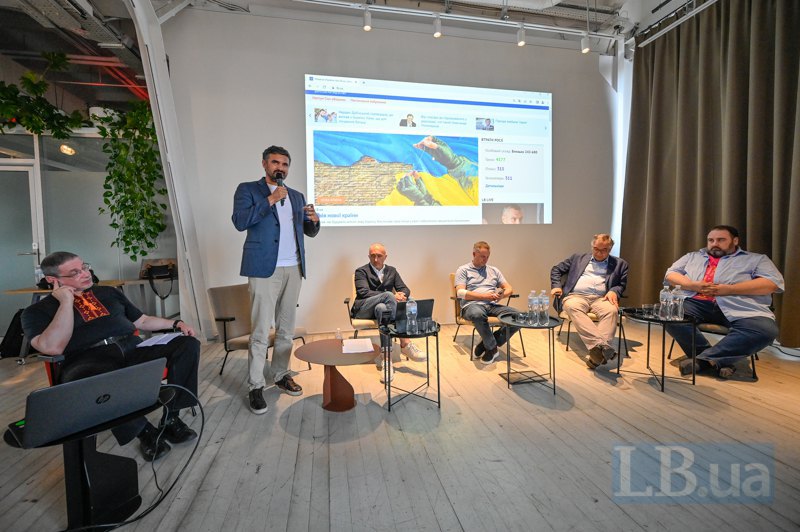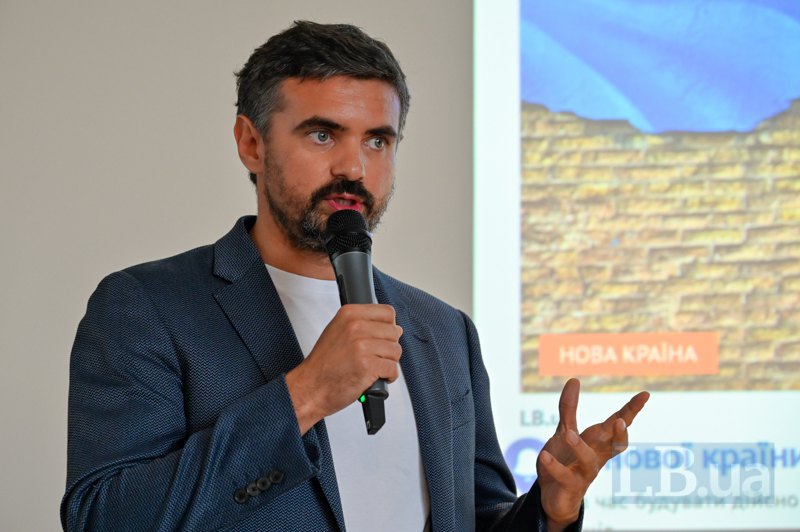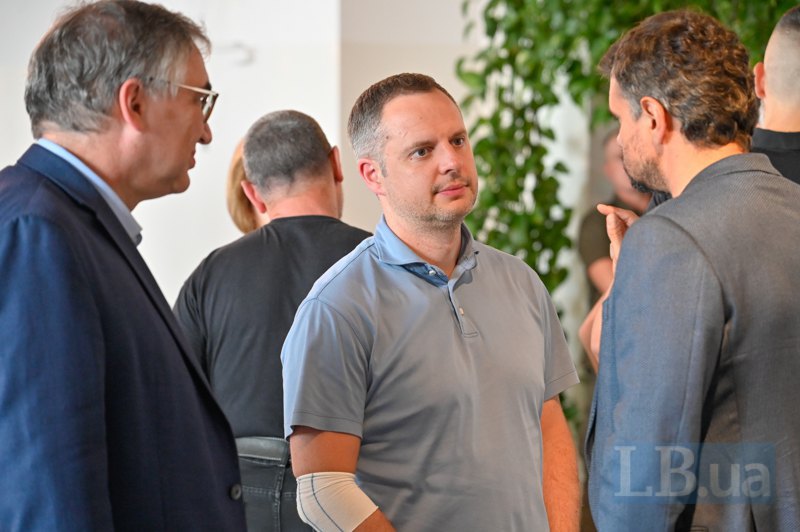
Ihor Liski, chairman of the EFI Group supervisory board, co-founder of the Ukrainian Institute for the Future
The issue of returning the occupied territories of Donetsk and Luhansk regions will be one of the most pressing for modern Ukraine and society. First of all, because of the insidious and cynical Russian propaganda that has been spewing narratives since 2014, such as whether the lives of Ukraine's best sons and daughters are worth the lives of people who seemingly do not want to live with Ukraine. However, the businessman believes that we should not even think that we can give up our territories and our people.
"Of course, history has seen everything, and we need to be honest about the price of this liberation, but we cannot in our right mind give them up or say that these are not our people. Otherwise, the same narrative will soon be used in relation to Kharkiv, Dnipro, Zaporizhzhya. They will remind us about Poltava and Kyiv. First, they will mention the partition of 1939, then they will go further and say that Ukraine does not exist at all. It will be divided conditionally between Poland and the Russian Empire. That is, we as a society must be adults and build a narrative and a picture of a future Ukraine in which it will make sense to liberate these territories, in which even those Ukrainians who are currently occupied will want to live," Liski said.
He suggests taking post-war Germany as an example. During the unification, there was no discussion of whether those Germans who were "different" (those who lived in the so-called GDR - ed.) should be annexed to Russia. But no. The occupied territories have the same Ukrainians.
"I believe that 10,000-50,000 should leave these territories. Those who openly supported this regime, who are traitors, who are very often murderers, or accomplices. I assure you, they will leave, maybe more, but most people, I sometimes talk to them, sincerely want Ukraine to return, [they want] justice, a real opportunity to choose their own government, the law. And even those who had doubts five years ago now know for sure that things were better in Ukraine," the businessman said.

The narrative of division is very harmful. And society must mature to not divide people into сamps, but to treat citizens under occupation as hostages who need to be released, Liski believes. And, of course, we should think about bringing traitors to justice - first justice, and then, perhaps, mercy.
"Justice first. You cannot grant amnesty to those who killed people and tortured Ukrainian women. I remember the teacher in Luhansk school 42, who was the only one of all the school principals who spoke Ukrainian as a matter of principle. I personally supported her, I was at all the line-ups and ceremonial events, and then [the Russians] tortured her for speaking Ukrainian.
Therefore, justice first, then mercy and, possibly, amnesty. But we need a discussion," said Liski.
As for what should be built in liberated territories, the businessman said, there are discussions in closed circles. There is an opinion that a serious military contingent, a specially designed military base or something else should be deployed there and act as a major employer.
There is also a discussion about the creation of jobs.
"Naturally, we are not going to build any modern microchip factories there, we have other things to do in these territories. Moreover, there is a hidden consensus among investors that everything on the right side should be built with a long term in mind, and everything on the left side should be given an extra thought," Liski concluded.
Rostyslav Shurma, deputy head of the Presidential Office
"I'm going to say an unpleasant thing, not the one that everyone wants to hear. There is a dogma that we will rebuild something in Donbas.
We will not rebuild what was there. Not even close. Because the industrial way of life is over. The industrial era relied on coal: Donbas used to produce up to 200 million tonnes of coal in the 80s and 90s, 170 million tonnes when the Soviet Union collapsed, and now it produces almost nothing, 5-10 million tonnes of energy resources at most. Accordingly, steel mills, which were almost the largest segment there, are no longer needed there. They will be needed in the future targeted structure at ore deposits in Kryvyy Rih, Horishni Plavni, and Dniprorudne," he says.

Similarly, Donbas no longer has access to mechanical engineering and other industries which also relied on energy and labour potential. Donbas has already lost most of its labour potential.
According to Shurma, the profile of these territories will change. How exactly this will be done is a matter for discussion, and there is no official position yet. However, it will most likely be about highly productive agriculture and green energy because there are suitable natural conditions there: steppes with good insolation, good winds, and basic energy infrastructure.
We are also talking about the military cluster, which could become perhaps the largest employer. And the service industries that will emerge around it.
"As for employment, taking into account certain cultural peculiarities, and they exist, it should be recognised that people are somewhat different mentally. And we need to integrate them gently.
I have quite a few successful cases of relatives and friends who moved here to Ukraine in 2014 and 2015, and those who moved in 2021. If there is no concentrated migration, people assimilate very easily. They start speaking Ukrainian in three months. They have no problem finding friends. In six months, they no longer recall their 'native Donbas'.
Therefore, our policy should probably be linked to such a gentle integration of people into a united Ukraine, including migration processes, including building those sectors of the economy that will be competitive there in the long term, and not just rebuilding some factories or something else.
They are dead there already. A steel plant in Kryvyy Rih will have a 10% lower cost than a new steel plant in Mariupol, simply in terms of logistics costs," Shurma concluded.








